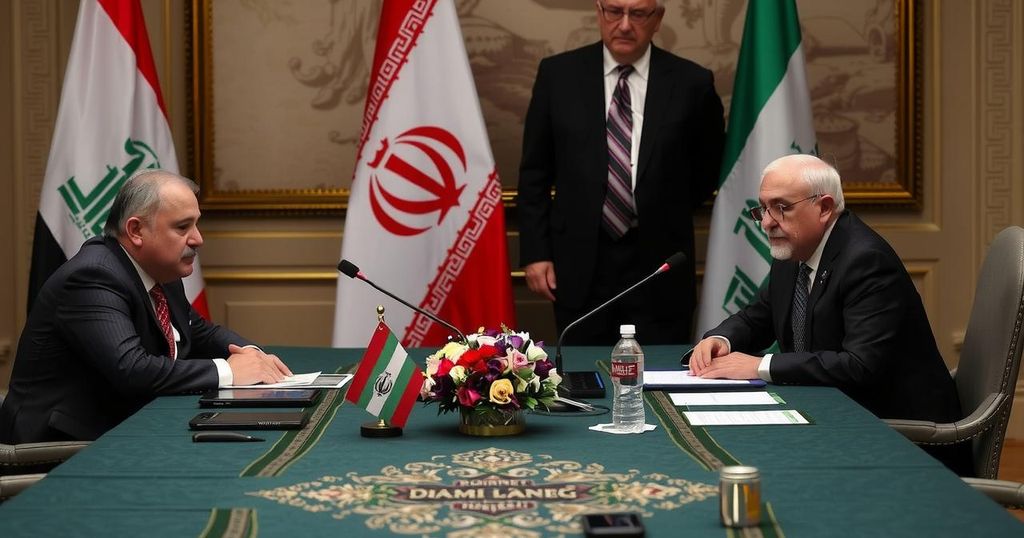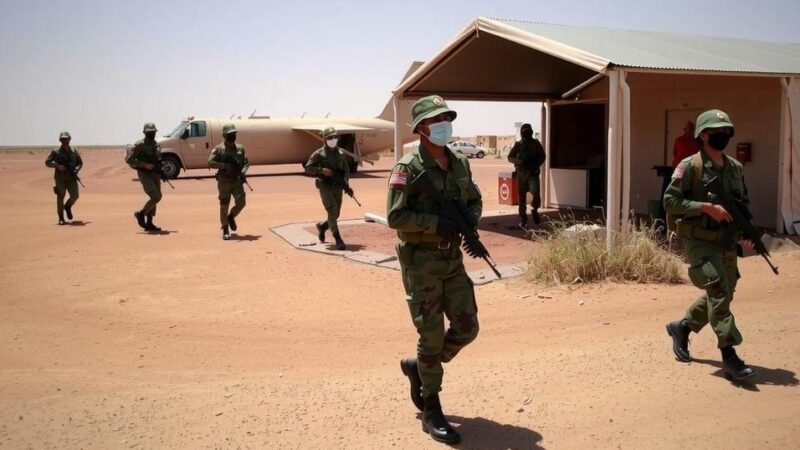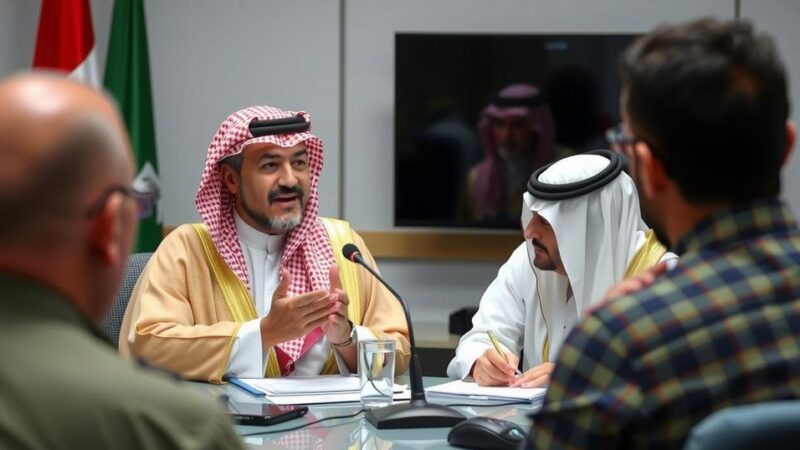An emergency meeting between the foreign ministers of Iraq, Iran, and Syria took place to discuss rising rebel offensives in Syria, particularly the capture of the city of Hama by opposition forces. Amidst varied opinions on intervention, Iraqi officials expressed concerns over national security implications while advocating for non-interference in Syria’s internal affairs. The complexities of regional politics continue to affect Iraq’s stance amid pressing security challenges.
On Friday, Iranian Foreign Minister Abbas Araghchi arrived in Baghdad for a trilateral meeting with his Iraqi and Syrian counterparts, Fuad Hussein and Bassam Al-Sabbagh, respectively. This gathering is a response to recent developments in Syria, where rebel forces have rapidly seized control of significant territories, including the strategic city of Hama. The situation poses considerable concerns for Iraq, with Minister Hussein emphasizing the regional security implications during his meeting with Araghchi.
The offensive launched by the Islamist group Hayat Tahrir al-Sham (HTS) has taken the Syrian regime by surprise, deteriorating the control of President Bashar al-Assad’s forces. In light of the recent territorial losses, including the fall of Hama to the rebels, the Iraqi foreign ministry fears that it may be too late to effectively influence the military balance in favor of Assad’s regime.
As discussions unfold, certain factions within Iraq voice opposition to direct involvement in the Syrian conflict. Khamis Al-Khanjar, leader of the Sovereignty Alliance, has warned against deploying Iraqi fighters to bolster the Syrian regime, advocating for non-interference. Aligning with this view, influential Shia cleric Muqtada Al-Sadr emphasized the importance of respecting the autonomy of the Syrian people in a social media post. He reiterated, “We remain steadfast in our stance of non-interference in Syrian affairs and in not opposing the decisions of the Syrian people, as they are the sole party responsible for determining their destiny.”
In contrast, Falih al-Fayyadh of the Popular Mobilisation Forces underscored the necessity for Iraq to remain vigilant, given the rising influence of terrorist groups in Syria. He articulated, “Although Iraq is not a party to the crisis, it must take preventive measures given what is happening in a neighbouring country,” asserting that the stability of Iraq cannot be separated from the situation in Syria.
The ongoing Syrian conflict has had significant repercussions for neighboring Iraq, particularly as various factions, including Islamist rebels, engage in violent confrontations with the Syrian regime. Recent escalations have drawn the attention of regional powers like Iran and Iraq, which share a vested interest in the stability of Syria due to potential security threats posed by unregulated armed groups. Within Iraq, political leaders from both Sunni and Shia backgrounds express mixed sentiments about intervening in Syria, reflecting the complexities of regional alliances and the desire for national sovereignty.
In conclusion, the emergency meeting held among the foreign ministers of Iraq, Iran, and Syria highlights the urgent concern regarding Syrian conflict developments and their implications for regional stability. While Iraqi officials recognize the necessity of addressing these security challenges, there is a growing consensus against direct military involvement in Syria. The contrasting views within Iraq regarding intervention versus non-interference illustrate the delicate balance faced by its leadership in navigating this complex geopolitical landscape.
Original Source: www.newarab.com







